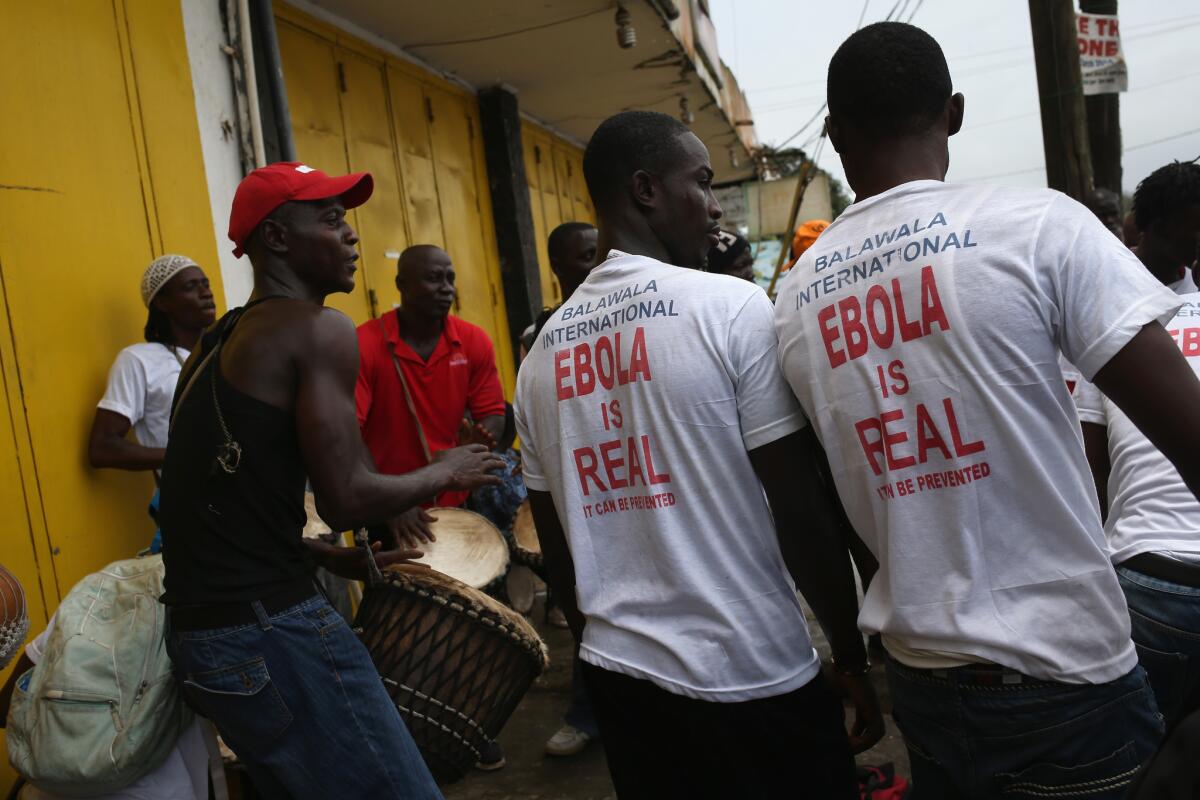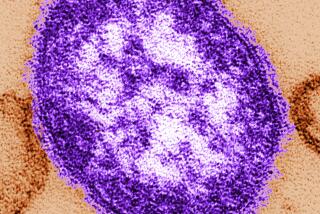Travel, tourism groups join up to keep travelers informed about Ebola

If there’s any good news out on the Ebola virus, it’s this: You can’t catch the deadly Ebola virus by casual contact with an infected person.
To make sure you know this and other information, the World Health Organization and global tourism, airport and airline organizations have formed a task force to help contain the spread of the disease in western Africa and keep travelers updated about their health risks.
The newly created Travel and Transport Task Force members include the International Civil Aviation Organization, the World Tourism Organization, the Airports Council International, International Air Transport Assn. and the World Travel and Tourism Council.
“Affected countries are requested to conduct exit screening of all persons at international airports, seaports and major land crossings, for unexplained febrile illness consistent with potential Ebola infection,” the task force said in a Monday statement.
“Any person with an illness consistent with [Ebola] should not be allowed to travel unless the travel is part of an appropriate medical evacuation.”
It doesn’t say airlines should stop flying to affected countries. The group also underscored the fact that travelers are at low risk of catching the disease while flying.
“Unlike infections such as influenza or tuberculosis, Ebola is not spread by breathing air (and the airborne particles it contains) from an infected person,” the statement says. “Transmission requires direct contact with blood, secretions, organs or other body fluids of infected living or dead persons or animals, all unlikely exposures for the average traveler.”
The group said infected people can’t spread the virus until they begin to show signs of the illness, noting the incubation period may run two to 21 symptom-free days.
People who are ill may have signs of fever, headache, achiness, diarrhea, stomach pain and other symptoms.
The Ebola outbreak began in December in Guinea, then spread to Liberia and Sierra Leone, killing more than 1,100 so far. A few people in Nigeria have been infected too after having direct contact with an ill man from Liberia.
Health officials say there’s no vaccination and no known cure for the disease.
The U.S. State Department earlier this month warned Americans to avoid traveling to parts of Nigeria, Liberia and Sierra Leone because of the Ebola outbreak.
Though WHO and health officials have flown to Africa to help contain the deadly disease, there have been some setbacks. A group of armed men Sunday looted an Ebola clinic in Liberia, sending about 20 Ebola patients back into the community and picking up infected items while chanting “There’s no Ebola” in Liberia.
Affected countries have been trying to educate their citizens about the disease and how it’s transmitted through entertaining events in the community that involve song and dance -- and a strong message about the disease.
More to Read
Sign up for The Wild
We’ll help you find the best places to hike, bike and run, as well as the perfect silent spots for meditation and yoga.
You may occasionally receive promotional content from the Los Angeles Times.







